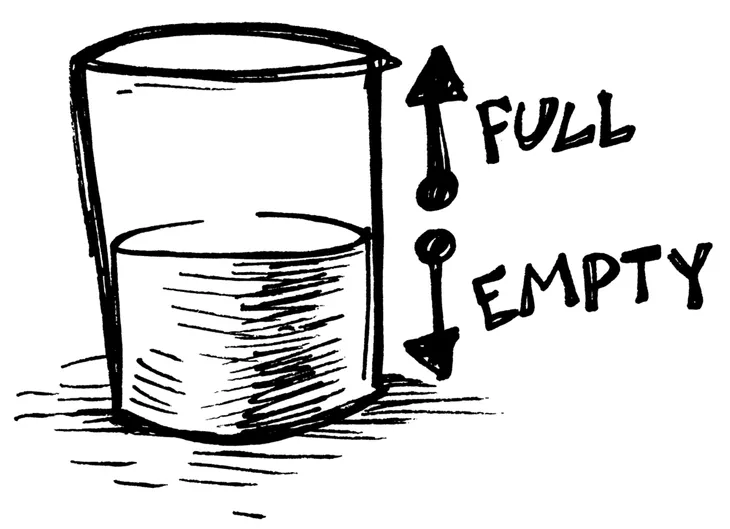Despite popular opinion therapy isn’t only beneficial for treating severe mental issues and tragedy. We’re so accustomed to seeing those with diagnosed mental health issues—such as depression, post traumatic stress disorder (PTSD), and obsessive-compulsive disorder—go to therapy on television and in movies that we often discount the fact that checking in with a therapist can help us with everyday issues (i.e., feeling stuck in a career rut, alleviate everyday anxieties, or break an unhealthy habit).
Here are six ways that therapy can help all of us…
You Don’t Take Responsibility
Your boss is the reason you’re not advancing your career. Your kids are the reason why you don’t have time to eat healthy. And of course your childhood is the reason why you’re emotionally unattached in relationships. But it’s the external lack of control over your own life that opens you up to low-confidence, depression, and multiple health issues.
According to a research study from China’s Hanshan Normal University, there is a direct correlation between lack of control over one’s life and increased rates of depression. The study, published in the Journal of Health Psychology, found that individuals who blame everything and everyone else for all of their life’s problems are relying on others rather than taking responsibility for their own health, success, and happiness. However, an unbiased stranger who happens to be an experienced mental wellness coach is the perfect source to teach you how to take control of your own life and happiness.
You Live For The Approval of Others
A chameleon is a species of lizard that has the distinct ability to change colors and adapt easily to its surrounding environments. Research from the American Psychological Association (APA) ascertains that human beings have chameleon tendencies too. After all, we crave attention and approval from our friends, our family, and even strangers. However, when our need for external approval overwhelms who we really are, we’re often left lonely, unfulfilled, and unhappy.
A 2003 study from the APA found that individuals who constantly doubt their own judgment are at risk of a wide array of psychological problems—including depression, anxiety, procrastination, mood swings, and low self-worth—due to developing a lowered opinion of personal judgment and decision-making abilities. In making compromises to please external forces, it’s very difficult to stay authentic and faithful to your own desires, beliefs, and goals. However, a therapist can help re-establish your decisions-making worth and authentic value system.
You Avoid Conflict At All Costs
As humans we have a very natural “fight or flight” response that kicks in whenever we’re faced with a menacing or life-threatening situation. In fact, it’s quite human to avoid hostile situations at all costs. However, summing up the courage to ask your boss for a raise or putting a disrespectful friend in their place is not avoiding danger to life and limb—it’s preventing change and the potential happiness and success that will emerge from it.
According to the Canadian Mental Health Association, those who do everything in their power to avoid confrontation by any means necessary (i.e., ignore dysfunctional family, avoid responsibility at work, shun new social experiences) are not preventing confrontation—they’re ignoring it likely due to a form of anxiety disorder. Thankfully, a trained therapist can role-play and challenge you to take healthy risks for meaningful change.
You Bully and Berate Yourself
A certain amount of self-criticism can be healthy for the ego. However, Doctor Alex Lickerman, the author of The Undefeated Mind: On the Science of Constructing an Indestructible Self, and the former director of primary care for Student Health and Counseling Services at the University of Chicago, says too many of us wage an all-out, never-ending internal battle against ourselves. One that leaves us wrought with self-loathing.
Oftentimes, it’s those who support and care for others the most are those who struggle to extend that same gratitude, understanding, respect, and sympathy inward. Dr. Lickerman says that a therapist can help awaken the personal wisdom and compassion for self-care, and most importantly teach us to earn and demand our own respect.
You Become an Enabler
We’re told that successful adults take responsibility for their own lives and actions. However, why then do many of us try to extend a web of control over other adults we care about? If you constantly cover your loser brother’s grocery bill or continue to “lend” money to a friend even though he or she has never had a job, you may be creating unhealthy imbalances in your relationships.
According to research in Psychology Today, an emotional caretaker takes on the responsibility load for another adult, creating an imbalanced or dependent relationship. Most emotional caretakers focus on the self-sacrifice they’re making as gestures of love. However, this control actually enables the “under-functioning” individual to continue their dysfunctional, needy behavior. With the help of a therapist, you can learn to help those you care about without taking responsibility for them.
You Assume The Absolute Worst
We live in a world where sometimes the glass is half full and sometimes the glass is half drained. However, if your glass is metaphorically always dry, your pessimism can consume everything in your life like a storm cloud of self-fulfilling prophecy.
Dr. John Grohol, a mental health and psychology expert who sits on the editorial board of the journal Cyberpsychology, Behavior and Social Networking and co-founder of the Society for Participatory Medicine, claims that focusing on the worst is a form of “catastrophizing,” which occurs when one puts a negative spin on all situations. Research shows that this constant belief that real life is worse than it actually is contributes to the development of severe anxiety and depression. Therapists specializing in cognitive behavioral therapy can help identify irrational criticisms.









